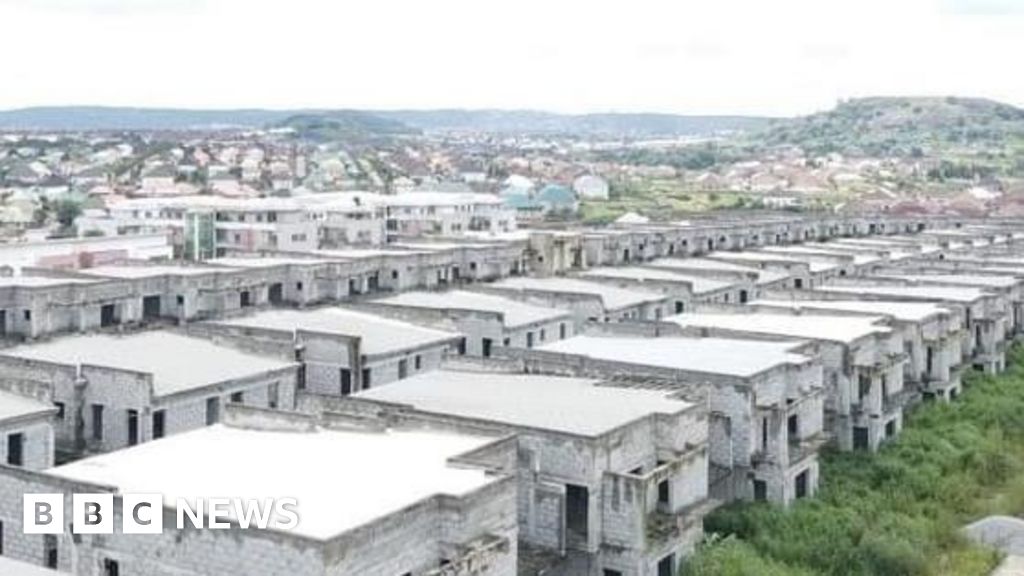The Economic and Financial Crimes Commission (EFCC) has long positioned itself as Nigeria’s foremost anti-corruption watchdog, but its refusal to disclose the identity of the “top brass” government official who forfeited an estate valued as its “single largest asset recovery” since its establishment in 2003 – 753 duplexes and apartments on prime land in Abuja, is a glaring betrayal of the transparency it is sworn to uphold. This secrecy not only undermines the commission’s credibility but also insults the intelligence of Nigerians demanding accountability. Instead of celebrating this milestone in the fight against corruption, Nigerians are left questioning the commission’s motives. Why has the anti-graft agency refused to disclose the identity of the former government official linked to this massive forfeiture?
In response to growing public criticism, including from notable voices like Omoyele Sowore, the EFCC defended its secrecy. In a statement by its Head of Media and Publicity, Dele Oyewale, the commission argued that its actions were guided by the legal framework governing forfeiture proceedings under Section 17 of the Advance Fee Fraud Act. This provision allows for action-in-rem—a process targeting property rather than individuals—particularly in cases of unclaimed assets. The EFCC explained that public notices were published during investigations, and a flagged company denied ownership of the estate. Consequently, the court granted a final forfeiture order based on this legal principle.
Furthermore, the EFCC stated that its criminal investigation into the matter is ongoing and that revealing names without direct evidence linking individuals to the property’s title documents would be “premature and unprofessional.” The commission also reiterated its commitment to impartiality, professionalism, and its “no sacred cow” policy.
While the EFCC’s explanation may hold water legally, it falls woefully short morally. Nigerians are not just concerned about the technicalities of forfeiture; they are demanding accountability, fairness, and transparency. The EFCC’s argument that it cannot name individuals due to the lack of direct title links is inconsistent with its previous actions. Why was the same legal prudence absent when the EFCC plastered the names and faces of unconvicted undergraduates across the internet for alleged internet fraud? Why are the powerful afforded anonymity while ordinary citizens are exposed to public shame before their guilt is established?
The EFCC’s refusal to name the implicated official – while claiming a “no sacred cow” policy – sends mixed signals. This ambiguity erodes public trust in the institution’s impartiality. If the EFCC is truly committed to professionalism and justice, it must address the perception that it shields the powerful while targeting the powerless. The commission must strike a balance between adhering to legal frameworks and respecting the public’s right to know who is responsible for such grand-scale corruption. Transparency is not just a procedural formality; it is a cornerstone of public accountability. By withholding this information, the EFCC undermines its own mission and allows speculation to fill the void, further tarnishing its credibility.
The fight against corruption requires more than legal victories; it demands moral clarity and public trust. The EFCC must move beyond technical defenses and demonstrate that no one, no matter how powerful is above accountability. The Nigerian public deserves better. This is not just about one individual or one case; it is about the EFCC’s integrity and the principles of fairness and transparency. Nigerians are owed answers: Who is the official? What were the circumstances of this massive theft of public resources? And why is this information being withheld?
Corruption flourishes in darkness. By refusing to name and shame this official, the EFCC sends a dangerous message that justice in Nigeria is not blind, but selective, reserved for the weak while shielding the powerful. The commission must immediately release the identity of this ex-government official and demonstrate that no one, regardless of status, is above accountability. Anything less is a disservice to the Nigerian people and the rule of law. The time for prevarication is over. The EFCC must either commit to transparency or admit it is no longer fit to serve as the guardian of Nigeria’s integrity.





